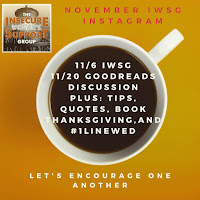One of the big challenges of being a writer is the lack of community. Even as we’re more connected now than ever before via social media, it can still be tough to find trustworthy information and engaged peers on this journey. While the act of writing is very individualized and mostly gets done alone (unless you collaborate with someone), it’s still very important to nurture your whole writing self with a community. During my more than ten years of teaching writing, I’ve long been trying to figure out the best way possible to facilitate this—and add some additional benefits.
A personality trait that, to me, differentiates writers who are likely to be successful from those who are likely to struggle is that inner drive to learn. Learn about the craft, the tropes, the expectations, the business, the process, the market, the other things that are on shelves. Whenever I speak at a conference, I make it a point to validate the writers who have chosen to attend–they are doing something valuable by getting together and learning. Writers have more educational opportunities available now than ever before, but it still takes thought and drive and dedication to make use of them.
That’s why we at Good Story Company decided to combine the elements of learning and community, to give motivated writers everything they might be looking for in one space. Good Story Learning is a membership community that collects all of our “deep dive” educational content, vide courses, workshops, and webinars in one place for on demand viewing. Join for a month and binge. Stay longer and really work your way through the many classes we’ve taught over the years about querying, first pages, picture books, novels, self-editing, marketing, and more. You’ll find more than one hundred hours of content and fifty downloadable handouts and resources.
In addition to this wealth of information and curriculum, Good Story Learning provides that community that’s housed on a Discord server (combining the functionalities of a forum and a chat room). Here, we have questions of the day, AMAs (“ask me anything” sessions with the faculty), and separate chat rooms for all of the main writing and publishing categories that our students are involved in. We’ve even had members host writing get-togethers, where they work in solidarity and companionable silence. The Discord server represents a great opportunity to connect to other writers, get advice and close personal attention from the Good Story Company editors (myself included), and hold yourself accountable to learn and write. Give a little community, get a little community in a safe and supportive place.
To keep growing our offerings and helping writers come together, we are introducing a book club for our members with monthly discussion of current titles, led by our editors. This will help writers who aspire to stay on top of the market to tune in, hear insider perspectives, and share their takes.
Good Story Learning is, like any WIP, a resource and community that’s growing and changing. Come join us and see what it’s all about. To get your first month free, use code FIRSTFREEIWSG.








